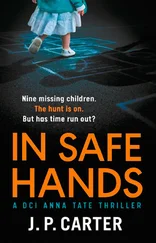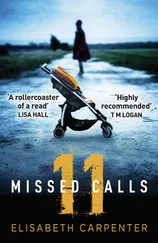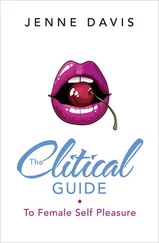“What are you watching?” I asked.
“She’s teaching them how to do eyeliner,” B replied.
“Do you like that?” I asked.
“I don’t know,” B said. “You can see the brush tugging on the skin near the eye. The skin bunches up and stretches at the same time. It looks like a balloon being written on. Or something.”
I looked at the screen. The woman who was speaking had her hand wrapped around the jaw of the other woman, holding it from beneath the way someone would hold a dog being force-fed a heartworm pill. She tilted the jaw up so that the eyes listed toward the ceiling, and then she brought the pencil point down toward the socket from above. It’s so simple, said the voice of the woman makeup artist. Just think of it as drawing a picture. You’re drawing a picture of your face, right smack onto your face. Draw the face you’d like to have. Draw your perfect face. Okay, now make sure your pencil’s sharp. I’m going to do little points at the end here, see? Looks just like a little wing. Now we’ll do blush. Right after this break. The camera pulled back for the first time to show the full view of the woman being made up. She was reasonably pretty, with a heavy nose and chin. A spattering of zits trailed from her temple down toward her ear. She turned her face silently toward the camera, revealing a half-finished face. One side was a uniform beige with a thick, elongated eye that swept up toward her temples. The other was bare. The eye within its socket seemed tiny and underprotected. It looked as though the second half of her face, previously hidden from the camera, were sliding off the side.
“She looks beautiful,” B said.
In the faintly electronic light of the television screen, I could see B’s T-zone pores, her untreated pimples, a small unexplained scar beneath her left eye, unnaturally smooth and white against the weak tissue. Sometimes a face could be so simple: even a couple of dark spots on a lighter surface or a dark oval in the distance might be a face. An electrical socket could be a face, a mailbox or a couple of punctuation marks could congeal suddenly into something with an expression. Our faces, on the other hand, were made of hundreds of different parts, each part separate and tenuous and capable of being ugly, each part waiting for a product designed to isolate and act upon it. Every time I looked at my face, I seemed to find another new piece to it, floating there next to or underneath or inside the others, all the parts together but impossible to connect.
B sat forward, trying to catch every word of the commercials as they unfolded one after another, her eyes darting from the left to the right over and over again as the bluish light played off her face. The two of them were like one now, B and the television. She balanced at the edge of the couch, clutching the remote with both hands. Then she looked right at me.
“You know, I think things would be better if I looked more like you,” she said.
“What do you mean?” I asked, feeling nervous.
“I mean, I feel like if I looked more like you, maybe more people would talk to me. The way they talk to you,” B said.
“I’m sure people talk to you,” I said, though I had no idea if this was true.
“And when I looked in the mirror, maybe I wouldn’t mind so much when you stayed away,” B added, still looking right at me.
She said it with much more certainty than I expected from her. Her lower lip stuck out like a child’s, thick and center creased, with a wart on it that might have been caused by cigarettes or repeated biting.
“It would be like you were still here, so I wouldn’t really be alone,” she continued.
“Or maybe it would be like I wasn’t there as much, so I’d only feel partly as lonely,” she added.
Her eyes were looking much larger than I had remembered.
“I don’t know,” I said. “Maybe you could get a pet?”
B looked for a second like she was going to cry or bite me.
“You don’t understand,” she said. “You’ve always got yourself to keep you company.”
I wanted to disagree, but I didn’t even understand. The effort of the conversation was making me hungry, hungry for something more substantial than an orange. But when I tried to think it through, think about what I would prefer to eat instead, all I could see was oranges, all I could taste was oranges. It was as if my mind were the exact size of an orange. There was no room to move around it. I could think only of pulp, the soft, warm wad of sweetness on my tongue growing blander as the jaws closed on it, the tiny sacs of juice popping and the ropy bits of rind catching on the teeth. And then there was the amniotic sound, the edgelessness of wet against wet. The sound I imagined shifted into other sounds, related as water is to other water: a sameness displaced and separated, but only temporarily. I heard myself chewing, and it made my mouth water.
“You’re with me or you’re with C or you’re alone, and it doesn’t seem to matter. You’re the same all the time,” B said.
I was thinking of a perfect orange, whole in my palm. It fit there as if it were made for me. I was cupping it in my palm and then I was lifting it toward my mouth. I bit into it like an apple, peel and all.
“But it’s not like that for me,” she continued. “I’m less when nobody’s around. I do less, I move less, I eat less.”
The ooze of the peel burned at the edges of my lips as I bit in. A bitter, oily orange film slicked my lips and teeth. There were little grains of something sliding in the oil and I bit harder. I tongued the flaps of rind, dry as felt, and tore them from the flesh with my teeth. I bit into the sweet wedges, and the wound filled with juice around my lips. As I worked my tongue farther in, I felt the tips of seeds near the center.
“I think I even think less,” she said. “I don’t remember what happens when I’m alone. It’s like all that time just happens without me. It’s like being a chair or a table.”
B paused expectantly.
“Is there any way I can help?” I asked, hoping there wasn’t. But instead she looked eager, even happy.
“Can we have a slumber party?” she asked. “Where you give me a makeover?”
“Would that really help?” I asked.
Now she sat back, as if I had already agreed.
“Definitely,” she said. “Definitely.”
“Okay,” I said. “Do you want to go to the store to get makeup?” I asked.
“I’ll just use yours,” she said. Then she turned her face back to the TV and flipped a page of the magazine in her lap. The magazine was called Women Tomorrow. She reached over to the coffee table and primly picked up a paper cup. A lemon scent trailed from the paper cup, strong enough to sting your eyes.
I stood there feeling irrelevant. It was as though B had forgotten all about me the second I gave in. Usually B hung on me whenever I was in the common space, asking me what I thought about different TV shows, outfits, different kinds of food. Now she was acting more like I did when I wanted to remind her that this had been my apartment first, silence hardening up around her bony body as she watched her own things, as if I were the one with something I wanted from her. I wanted her to return me to the way I had been when I was confident, when each inch of this apartment was familiar to me, rather than a couple of steps removed, like a photograph of a drawing of a place you had once loved. I wanted her to act like herself, insofar as the B I had known always wanted to be like me, act like me, but was never quite able to do it. I wanted her to side with me on the weirdness of the house across the street, I wanted her to worry about what happened over there the other day and let me try to comfort her.
Читать дальше
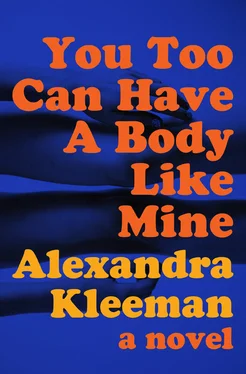

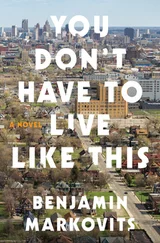
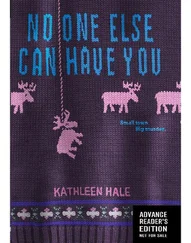
![Ally Carter - [Gallagher Girls 01] I'd Tell You I Love You But Then I'd Have to Kill You](/books/262179/ally-carter-gallagher-girls-01-i-d-tell-you-i-lo-thumb.webp)


